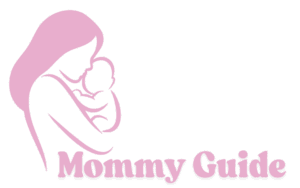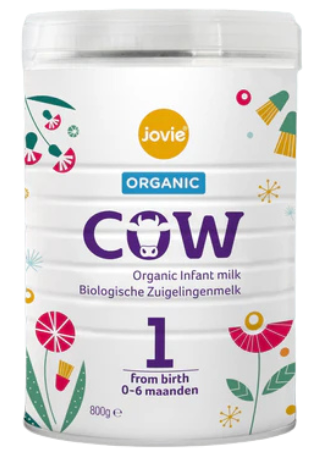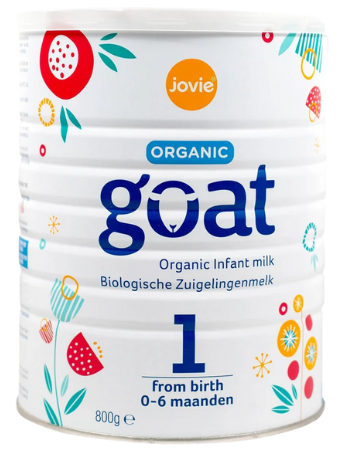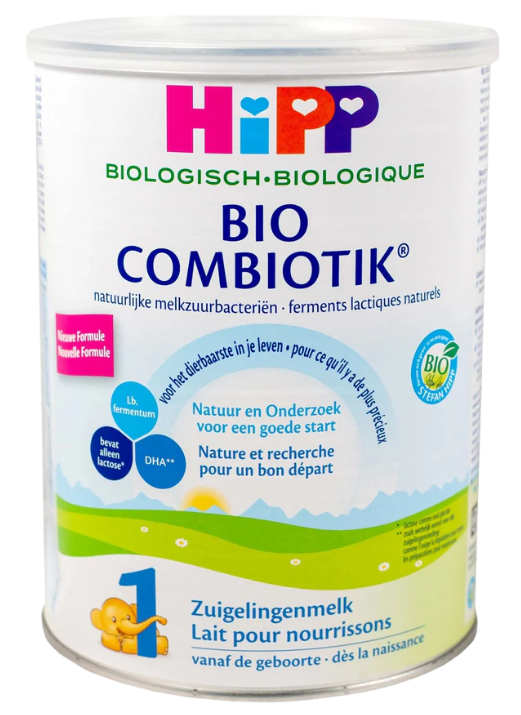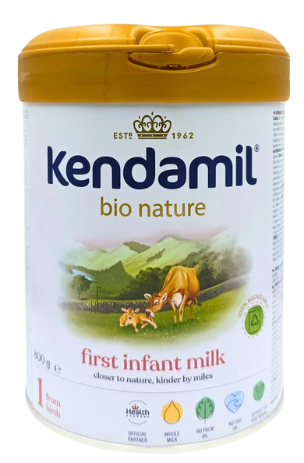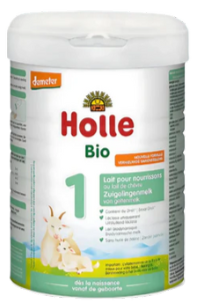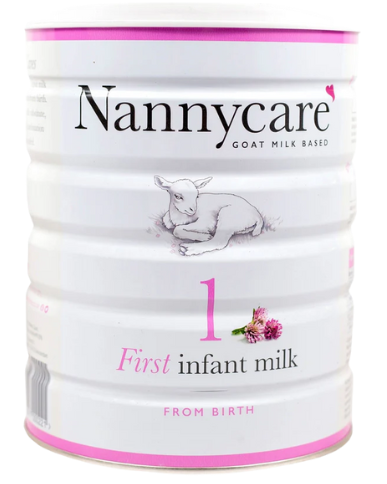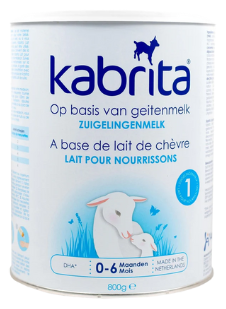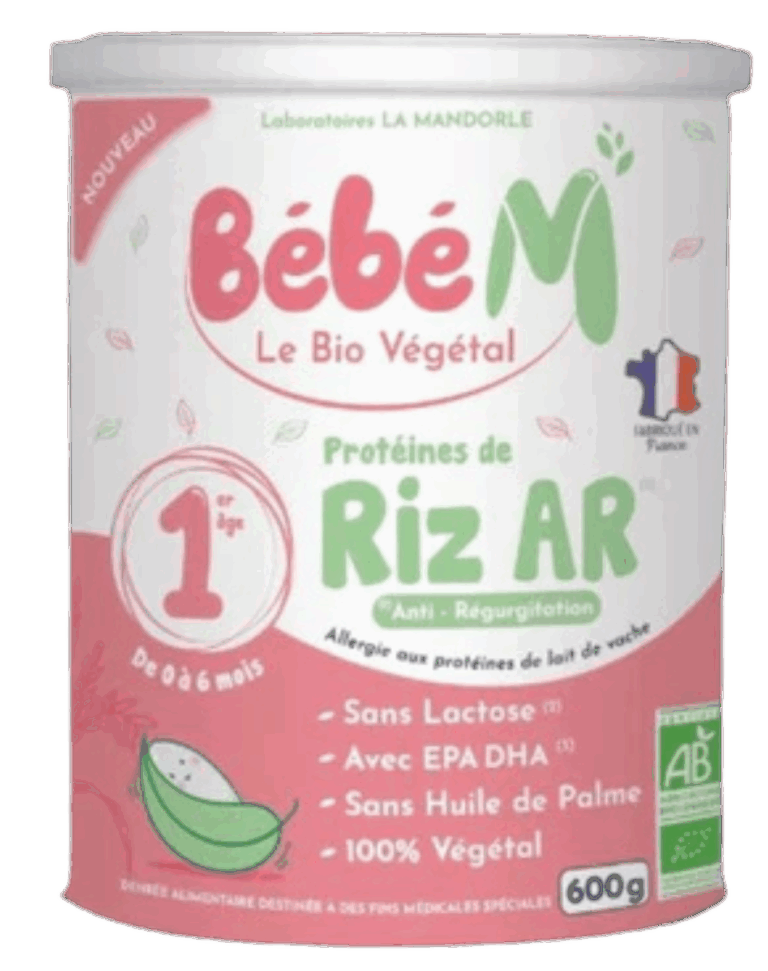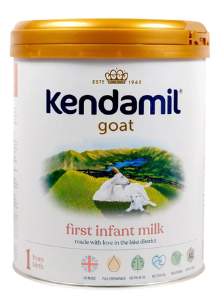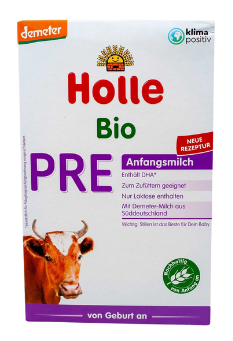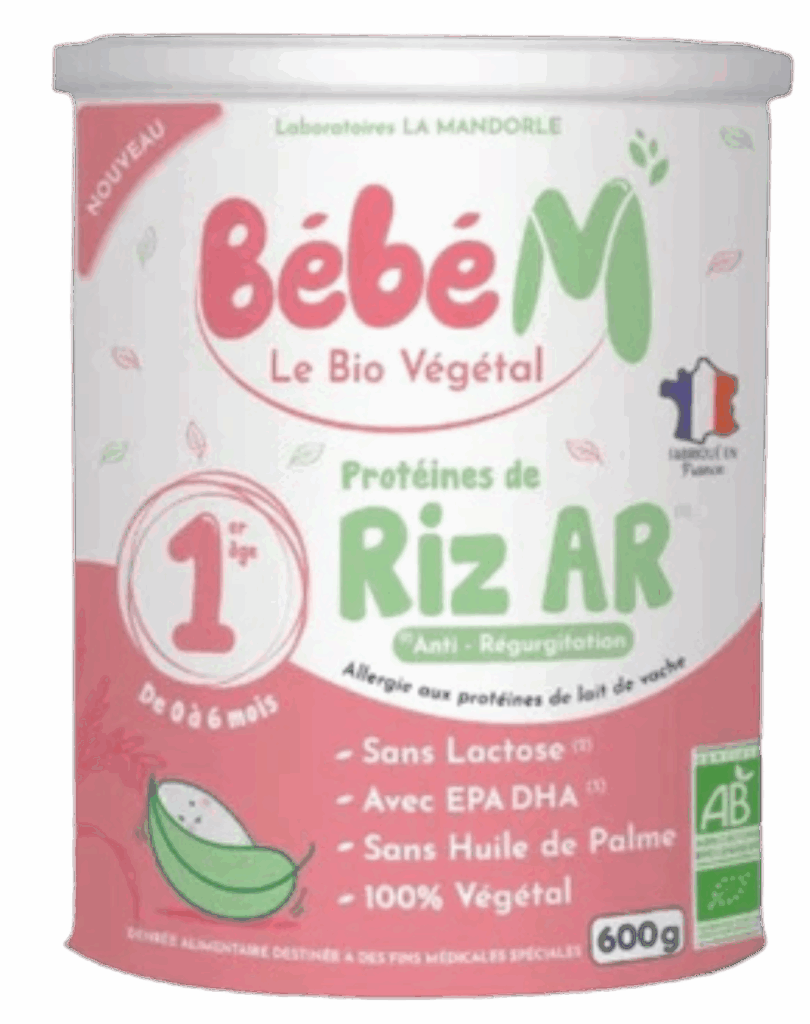Why European Pediatricians Don’t Recommend U.S. Baby Formula
Expert opinion by Dr. Claudia Claudia Bagarto, MD – Specialist in Infant Health & Journalist at Mommy Guide
If you’re a parent who’s begun to question whether European baby formulas are truly better than those made in the U.S., you’re not alone. Increasingly, pediatricians and nutrition experts across Europe are vocal about why they recommend European brands—and why they often advise against their American counterparts. The answer goes far beyond marketing: it’s about ingredient quality, regulatory rigor, and a commitment to your baby’s health that’s enshrined in law, not left to chance.


Expert opinion by Dr. Claudia Bagarto, MD
Specialist in Infant Health & Journalist at Mommy Guide
Stricter Standards: How European Regulations Protect Your Baby
European baby formulas are subject to some of the world’s strictest regulations, overseen by the European Food Safety Authority (EFSA) and the European Commission. These organizations enforce rigorous standards to ensure infant nutrition is as safe and beneficial as possible, and pediatricians often point to several key differences between European and American formulas.
One of the most significant distinctions is the outright ban of certain ingredients in Europe. Artificial sweeteners such as corn syrup and sucrose, along with genetically modified ingredients, are prohibited in European baby formulas. These substances, however, are commonly found in many formulas produced in the United States. European regulations also require that at least 95% of all ingredients in baby formula must be organic, and every component must be free from synthetic pesticides, herbicides, and GMOs. This ensures that babies receive nutrition that is as natural and untainted as possible.
Another important difference lies in the mandatory inclusion of specific nutrients. Since 2022, European law has required that all infant formulas contain DHA, an essential fatty acid crucial for brain and eye development. In contrast, the U.S. Food and Drug Administration does not mandate the presence of DHA in baby formulas, and as a result, many American products contain little or none of this vital nutrient.
Furthermore, the European Union strictly limits the use of unnecessary additives. Ingredients such as carrageenan, guar gum, and certain preservatives, which are permitted in the United States, are banned in Europe. These strict regulations ensure that European baby formulas are especially pure and of high quality, providing parents with peace of mind when it comes to their child’s nutrition.
No Corn Syrup, No Synthetic Pesticides and a Whole Milk Base
“Many parents don’t realize that what’s not in European baby formula is just as important as what is. Unlike most U.S. brands, European formulas contain no corn syrup or synthetic pesticides, and they’re often made with a whole milk base instead of skim milk with added oils. That means fewer unnecessary additives, better digestibility, and ingredients that more closely mimic the composition of natural breast milk.”
Dr. Claudia Bagarto
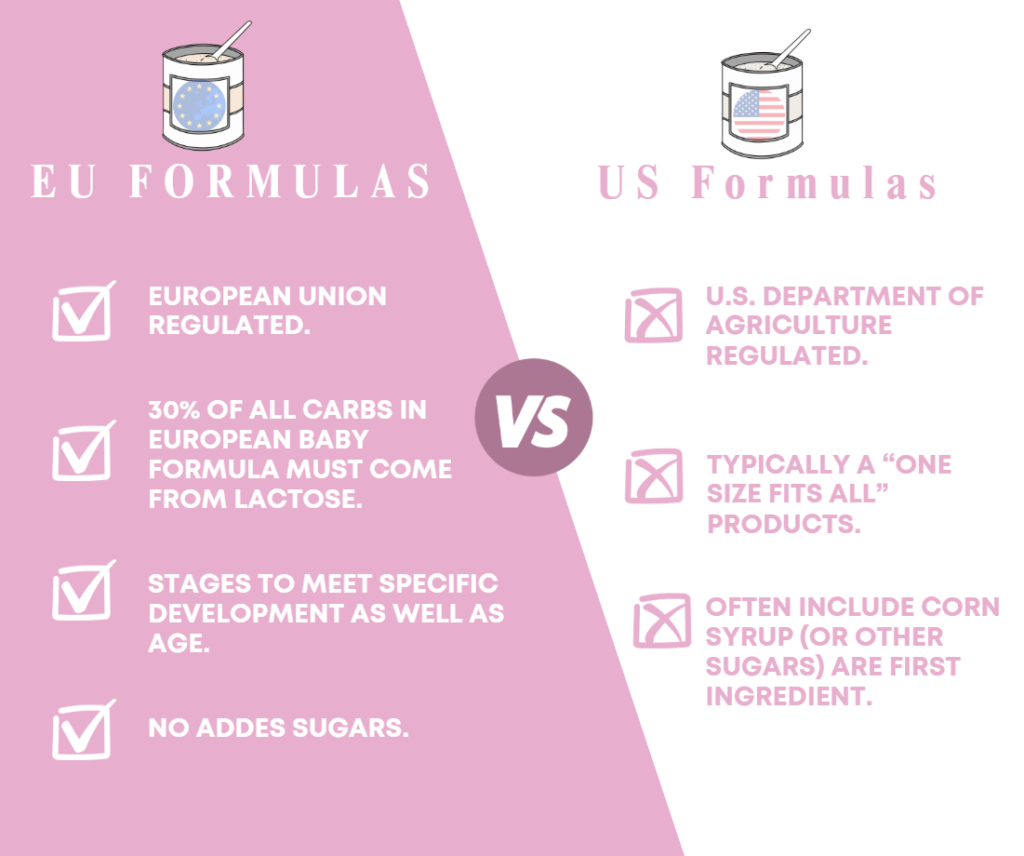
Ingredient Quality: What’s Really in the Bottle?
Pediatricians and nutritionists emphasize that what’s not in European formula is just as important as what is:
- No Corn syrup: European formulas use lactose, the natural carbohydrate in breast milk. In contrast, many U.S. formulas rely on corn syrup or glucose syrup, which are linked to increased risks of obesity and metabolic disorders.
- Lactose as the Main Carbohydrate: European formulas use lactose, the natural sugar in breast milk, as the main carbohydrate. U.S. brands often use corn syrup, glucose syrup, or brown rice syrup, which experts warn can contribute to obesity and metabolic issues later in life.
- No Artificial Sweeteners: Sucrose and other sweeteners are banned in Europe due to concerns about taste preference development and long-term health effects.
- Organic and Biodynamic Milk: Many European formulas, like Holle, use milk from biodynamic farms, which go beyond organic standards to promote animal welfare and environmental sustainability.
- No GMOs: European formulas are strictly non-GMO, while U.S. formulas may contain genetically modified ingredients.
- No Synthetic Nutrients or Pesticides: Ingredients like lutein, lycopene, taurine, and L-carnitine—sometimes produced with harmful chemicals—are banned in Europe but allowed in U.S. formulas.
Stage-Specific Nutrition: Tailored for Every Age
Unlike the U.S. “one-size-fits-all” approach, European formulas are divided into stages to match a baby’s evolving nutritional needs:
Stage PRE/1 (Birth -6 months)
Lactose as main carb, gentle proteins, no added sugars/starch
Stage 2 (6–10 months)
Higher iron, more calories, includes DHA, prebiotics, probiotics
Stage 3 (10+ months)
More starch/maltodextrin, higher calorie, supports transition to solids
Stage 4 (12+ months)
Toddler milk, fills nutritional gaps as solid foods become primary
This staged approach is designed to more closely mimic the changing composition of breast milk and support healthy development at every milestone.
The Healthier Choice: What the Science and Experts Say
- Reduced Exposure to Toxins:
Organic and biodynamic European formulas are free from synthetic pesticides, fertilizers, antibiotics, and growth hormones, reducing your baby’s exposure to potentially harmful substances. These formulas are produced according to strict European regulations, ensuring that at least 95% of the ingredients are organic and that genetically modified organisms (GMOs) are strictly prohibited. By avoiding artificial additives, preservatives, and pesticide residues, parents can feel confident that their baby’s developing system is not burdened by unnecessary chemicals. Early exposure to certain synthetic substances may be linked to long-term health risks, making organic formulas a safer and more reassuring choice for health-conscious families.
- Better Digestibility:
European brands avoid unnecessary additives and use prebiotics and probiotics to support gut health, making formulas easier to digest—especially for sensitive babies. The focus on using lactose as the primary carbohydrate, which closely mimics breast milk, helps promote natural digestion and reduces the risk of digestive discomfort. Many European formulas also maintain an optimal whey-to-casein protein ratio, further supporting gentle digestion and nutrient absorption for infants. For babies with sensitive stomachs or allergies, these carefully crafted formulas can help minimize issues like colic, constipation, or gas, allowing for a happier feeding experience.
- Nutritional Superiority:
European formulas are rich in essential vitamins, minerals, and fatty acids, providing a balanced diet that supports cognitive and physical development. They are often fortified with DHA and ARA—omega-3 and omega-6 fatty acids crucial for brain and eye development—at levels required by EU regulations, which are sometimes higher than those found in other formulas. The inclusion of a broad spectrum of vitamins (A, C, D, E, B-complex) and minerals (calcium, zinc, magnesium, selenium) ensures that your baby receives comprehensive nutrition for strong immunity, healthy bones, and optimal growth. Additionally, the careful selection of high-quality, organic ingredients means fewer allergens and a nutrient profile that more closely resembles the gold standard of infant nutrition: breast milk.
Where to Shop: Choosing a Trusted Source for European Baby Formula
For parents seeking the high standards of European baby formula, actually getting these products can be surprisingly complicated. Unlike U.S. brands, European formulas are not FDA-regulated, so buying them online often means navigating a patchwork of unofficial sellers. This raises real concerns about product authenticity, freshness, and safe shipping. Mislabeling, language barriers, and the risk of expired or counterfeit products are all potential pitfalls. Without a trusted source, parents may unknowingly put their baby’s health at risk.
But Where Can You Buy European Baby Formula—and What Should You Watch Out For?
We tested the Milky Box – and this is why we will keep ordering
For parents navigating the often confusing landscape of infant nutrition, sourcing European baby formula can feel like a daunting task. The Milky Box has emerged as a notable player in this space, offering a curated selection of Europe’s most respected formula brands and making them accessible to families worldwide. Rather than simply acting as a retailer, The Milky Box positions itself as a bridge between parents and the high standards of European infant nutrition, emphasizing transparency, ingredient quality, and customer support.
Why Shop at The Milky Box?
- Outstanding customer service, with 24/7 support from a knowledgeable team
- Fast and free express shipping on bundle orders (6-, 8-, and 12-packs)
- Guaranteed freshness and long shelf life for every product
- Handpicked organic selection from Europe’s most trusted producers
- Superior ingredients: lactose as the main carbohydrate, no harmful additives, healthier fats, and many soy-free and synthetic-free options
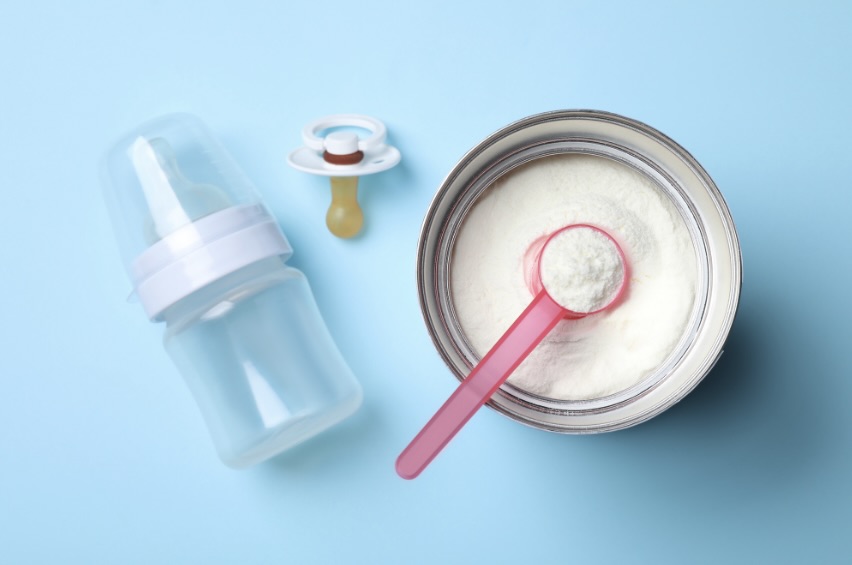
- Easy navigation by formula category (cow, goat, hypoallergenic, sensitive) and by developmental stage
- Commitment to environmental stewardship, with many formulas sourced from biodynamic farms
- Hassle-free shopping experience, from secure checkout to reliable delivery
In a market where quality and trust are paramount, The Milky Box aims to simplify the process of choosing and receiving European baby formula, supporting parents at every step.
Ingredient Advantages: The Milky Box Difference
Closer to Breastmilk
Uses lactose as the main carbohydrate, with added whey for digestibility.
No Harmful Additives
Avoids corn syrup solids, glucose syrup, sucrose, sugar, and brown rice syrup.
Healthier Fats
Natural vegetable oils (palm, coconut, sunflower), with soy-free options available.
No Synthetic Ingredients
Bans synthetic nutrients and additives found in many U.S. formulas.
Demeter Quality
Offers biodynamic, beyond-organic formulas with no GMOs and a focus on environmental stewardship.
The Verdict: Why European Formulas Are the Top Pediatrician Recommendation
European baby formulas are widely regarded by pediatricians and nutrition experts as the gold standard for infant nutrition. This reputation is built on a foundation of unmatched ingredient quality, rigorous safety standards, and a deep commitment to organic, sustainable farming practices. European regulations strictly control what goes into infant formula, banning artificial sweeteners, GMOs, and unnecessary additives, while requiring high levels of organic content and essential nutrients like DHA. These formulas are also tailored to each stage of a baby’s development, closely mirroring the natural evolution of breast milk and supporting healthy growth at every milestone.
For parents who want to give their babies the cleanest, safest, and most developmentally appropriate alternative to breast milk, European formulas stand out as the clear choice. The peace of mind that comes from knowing your baby’s nutrition meets the highest standards is invaluable.
If you want the best for your baby, trust the formulas—and the store—that European pediatricians recommend. Shop The Milky Box for the world’s safest, most nutritious baby formulas, delivered fresh to your door.

Expert opinion by
Dr. Claudia Claudia Bagarto, MD
Specialist in Infant Health & Journalist at Mommy Guide
As a journalist at Mommy Guide, she has spent many years specializing in evidence-based health education, with a particular focus on infant nutrition and baby formula. Her goal is to present medical expertise in an accessible way and provide well-founded recommendations for everyday life.
Top European Baby Formulas: Our Trusted Recommendations
Discover the best European formulas, carefully selected for their premium ingredients, strict safety standards, and gentle nutrition tailored to your baby’s needs.
